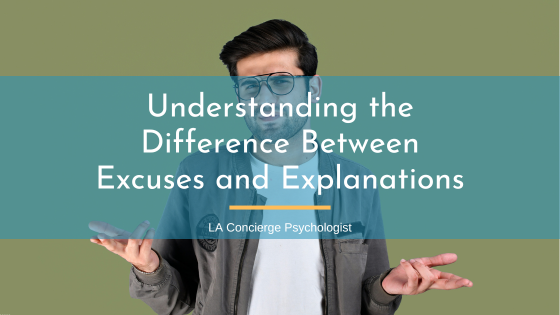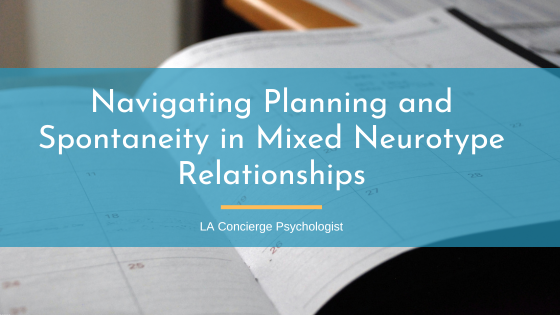An autism assessment represents far more than a clinical process that provides a diagnostic label. For many people seeking to understand themselves and their needs, the assessment journey itself becomes a profound therapeutic experience with far-reaching benefits extending well beyond the diagnostic outcome.
Traditional neuropsychological assessments typically involve brief clinical interviews (often just 1-1.5 hours) followed by standardized testing. While this approach may arrive at an accurate diagnostic conclusion, it often fails to provide the deep therapeutic benefits that can arise from a more extensive, conversational assessment process. The brevity of traditional interviews doesn’t allow for the depth of sharing, reflection, and collaborative meaning-making that creates transformative experiences for the individual.
In contrast, our assessment approaches prioritizes extended dialogue over four to six sessions. This creates space for therapeutic benefits to emerge naturally alongside the diagnostic process. This extended format allows for relationship-building between psychologist and client, deeper exploration of life experiences, and meaningful co-creation of understanding that traditional assessments cannot offer.
The traditional view of autism assessment often focuses narrowly on its diagnostic function. That is, determining whether an individual meets the criteria for autism. However, this perspective overlooks the significant therapeutic value inherent in a well-designed assessment process. Crane et al. (2018)[1] explored experiences of the diagnostic process. All three groups reported that the diagnostic process needed to be more accessible and person-centered. When conducted through a neurodiversity-affirming or neurodivergent-affirming lens, the assessment journey can facilitate deep self-reflection, validate people’s lived experiences, foster community connections, and provide a coherent framework for understanding oneself.
For many adults seeking assessment, the process represents a culmination of years, sometimes decades, of searching for answers to explain persistent feelings of difference and struggle. The quest for understanding often follows a long history of misdiagnoses, invalidating clinical encounters, and accumulating mental health impacts from living in a world not designed for their neurotype. In this context, a thoughtful autism assessment offers not just diagnostic clarity but also profound validation and a pathway toward self-acceptance.
The therapeutic benefits of autism assessment are particularly significant for those diagnosed in adulthood. Unidentified autistic adults have often navigated complex life experiences without understanding the underlying patterns that explain their challenges and strengths. For these autistic people, assessment offers a powerful recontextualization of their life history, allowing them to revisit past experiences through a more compassionate and accurate lens. This reframing can facilitate healing from internalized negative beliefs and create space for authentic self-expression, often for the first time.
This article will discuss the many therapeutic benefits of an extended interview-focused autism assessment. Drawing on research evidence and lived experiences to illustrate how the process itself, independent of diagnostic outcomes, we’ll show how our assessments can facilitate profound personal growth, enhanced self-understanding, and improved quality of life for neurodivergent people.
What are the Therapeutic Benefits of an Autism Diagnosis?
Autism presents differently, depending on the person. Not one autistic person will look exactly like another autistic person. Unfortunately, the diagnostic criteria for autism don’t capture all of the many different strengths and struggles of the autistic experience.
Recent years have seen a growing recognition of the importance of neurodiversity-affirming approaches to autism assessment, frameworks that acknowledge autism as a natural variation in human neurodevelopment rather than a disorder to be “fixed.” These approaches emphasize personal strengths alongside challenges and focus on environmental barriers rather than inherent deficits.
Such perspectives have transformed the assessment experience from one potentially focused on cataloging “symptoms” to one centered on understanding the unique ways an autistic person experiences and interacts with the world.
Here are some of the ways that having an autism assessment might have a positive impact on your life beyond a diagnosis.
1. Setting Aside Structured Time for Self-Reflection
The assessment process creates a dedicated space for structured self-reflection that many people have never experienced before. This intentional pause from daily life allows for deeper introspection about personal experiences, challenges, and strengths with a qualified practitioner.
The assessment process in of itself can be valuable to participants independent of the diagnostic outcome, with many reporting that having protected time to discuss their experiences was therapeutic in itself. This structured reflection time helps individuals integrate fragmented experiences into a cohesive narrative of their lives.
According to Punshon et al.[2], many adults seeking autism assessment reported that the process prompted ongoing reflection outside of clinical sessions. The questions posed during the assessment often catalyzed new ways of thinking about past experiences, with participants continuing this reflective process independently between appointments.
For example, in my extended assessment model (4-6 sessions of 45 minutes each), clients benefit from consistent weekly reflection time that builds on itself. Unlike one-off or brief assessment interviews, this allows themes to develop naturally across sessions, with each appointment building upon insights from previous conversations. Our clients often report that the weekly rhythm of reflection becomes a valuable practice in itself, creating momentum for self-discovery that continues between appointments.
2. Guided Reflection through Expert Questioning
Many people, particularly young people, can find traditional autism assessments stressful and confusing. Neurodivergent-affirming therapists provide carefully designed questions that help individuals make connections they might not have discovered independently. These questions, offered in an autism-friendly environment, can serve as scaffolding for self-understanding.
Autism-specific assessment questions help participants connect seemingly disparate life experiences into meaningful patterns. This can illuminate aspects of themselves they had never considered relevant or connected to their neurodevelopmental profile. This guided reflection often extends beyond the assessment period, particularly with ongoing neurodivergent-affirming therapy, providing individuals with new frameworks for understanding themselves.
When assessment spans multiple sessions, we’re able to tailor questions based on emerging understanding rather than following a rigid protocol. This conversational and responsive style allows for deeper exploration of relevant themes unique to each individual’s experience. We’re able to circle back to important topics and ask clarifying questions based on previous sessions. This means we can make meaningful connections between seemingly disparate experiences.
3. Experience of Being Deeply Understood
The comprehensive nature of an autism assessment creates opportunities for individuals to feel genuinely understood, often for the first time in their lives. Having a validating experience during assessment can help counteract previous negative interactions with healthcare professionals.
The validation received during assessment often serves as a powerful counter-narrative to years of misunderstanding. It’s not just about being understood in that moment but about rebuilding a sense of self that may have been eroded by years of feeling misinterpreted or overlooked.
Our multi-session approach allows for a genuine therapeutic relationship to form, creating a container of trust where clients can gradually share more authentic expressions of themselves with me. As sessions progress, many clients report feeling increasingly comfortable revealing aspects of their experience they typically mask or hide from others, a crucial factor in accurate assessment of autism, particularly for those with presentations that differ from stereotypical models.
4. Professional Validation of Lived Experience
Validation from a qualified professional carries significant weight, affirming that one’s experiences are real and legitimate. Professional validation during autism assessment can help neurodivergent people challenge internalized negative beliefs about themselves that have developed through years of misunderstanding.
Research by Leedham (et al)[3] interviewed late-diagnosed autistic women who revealed that professional validation often helped counteract previous gaslighting experiences where their concerns had been dismissed or minimized by others. Their diagnosis also helped facilitate a journey from being self-critical to self-compassionate, coupled with an increased sense of agency and greater acceptance and understanding of the self. While this was painful to adjust to at such a late stage, this validation provides external confirmation that supports developing self-trust. This reframing can be profoundly healing, offering a compassionate alternative to years of self-blame.
In a multi-session assessment model like ours, this validation isn’t a one-time occurrence but a sustained experience across weeks of interaction. The continuity allows for validation of numerous aspects of autistic experience, from sensory sensitivities to social differences to executive functioning challenges. This comprehensive validation creates a more complete sense of being seen and understood than is possible in briefer assessment formats.
5. Enhanced Self-Understanding Through a Cohesive Framework
An autism assessment can also provide a coherent explanatory framework that helps individuals make sense of their lived experiences. Receiving an autism diagnosis in adulthood can function as an “explanatory device” that helps individuals retrospectively understand confusing or difficult life experiences. After living life in a neuroformative world, this new understanding allows many autistic people to reinterpret past struggles through a more compassionate lens.
Throughout our sessions, I work with clients to identify patterns and themes, gradually constructing an understanding that feels authentic and meaningful. This co-created framework has deeper resonance and utility than one simply presented at the conclusion of a brief assessment.
Post-assessment, autistic people are better able to make sense of their sensory experiences, social difficulties, and cognitive differences that had previously seemed disconnected or inexplicable.
6. Fostering Self-Acceptance as an Autistic Person
This process of self-acceptance is deeply emotional and often non-linear. It involves mourning the years spent misunderstanding oneself while simultaneously celebrating the newfound understanding. Many individuals report experiencing a range of emotions: relief, anger, sadness, and ultimately, a sense of liberation. The ability to name and understand one’s experiences becomes a powerful tool for self-compassion.
An extended assessment provides space for these complex emotions to be acknowledged and processed as they arise across sessions. Unlike brief assessments, where emotional reactions may emerge after the process has concluded, a multi-session format creates opportunities to work through these feelings with professional support. This contained processing of emotional responses becomes a model for ongoing integration of one’s autistic identity. Clients are also able to schedule follow-up sessions with me to further process their thoughts and feelings regarding, if they desire. I’ve had clients reach out to me for further sessions months and even a year post-final assessment session.
7. Improved Quality of Life Through Informed Accommodations
Understanding autism-specific needs enables individuals to implement effective accommodations and boundaries. By receiving detailed feedback about their sensory processing patterns during assessment, autistic people can adjust their lifestyle, which can significantly reduce sensory overload and associated anxiety. These accommodations can lead to measurable improvements in daily functioning and well-being and reduce the likelihood of experiencing an autistic meltdown or shutdown and chronic autistic burnout.
A multi-session assessment allows for detailed exploration of sensory experiences, executive functioning challenges, and social communication patterns, information that directly informs personalized accommodation strategies. In our final assessment session, clients often bring in situations that we brainstorm effective workarounds and/or accommodations for.
8. Neurodivergent Community Connection and Reduced Isolation
Assessment often serves as a gateway to connecting with the autistic community, reducing lifelong feelings of isolation. Having a connection with the autistic community following their diagnosis, with most reporting significant reductions in feelings of isolation and “otherness” through these connections. This sense of belonging can also substantially decrease mental health outcomes. Neurodivergent-affirming therapy can also help autistic people reduce masking and, therefore, have more comfortable social interactions with lower stress levels and improved quality of life.
The extended assessment process itself can begin to address isolation, as it creates a consistent relationship with a knowledgeable professional who understands autism. For many, my assessment approach provides a first experience of being fully seen and accepted by another person who understands neurodivergence. This relationship becomes a model for the types of connections possible when one’s authentic self is recognized and valued.
9. Transformation of Past Experiences
The assessment process allows individuals to recontextualize painful past experiences through a new understanding of their neurotype.
Receiving an autism diagnosis in adulthood can help autistic people reframe childhood experiences of bullying, social exclusion, and academic struggles. This reframing reduces self-blame and allows for emotional processing of these experiences from a more compassionate perspective.
An extended autism assessment can help people understand and process previous traumatic life events, allowing a sense of “making peace” with difficult aspects of the past through new understanding. This gradual reprocessing of autobiographical memory allows for the integration of past experiences in ways that brief assessments simply cannot accommodate. The continuity across sessions enables individuals to develop new narratives about their lives that incorporate their autistic identity in meaningful ways.
Autism Assessment has Many Therapeutic Benefits, Beyond Diagnosis
The therapeutic benefits of autism assessment extend far beyond clinical diagnosis. When conducted through a neurodiversity-affirming lens, the assessment process offers structured reflection, expert guidance, validation, enhanced self-understanding, and practical pathways to improved quality of life. These benefits represent significant value independent of diagnostic outcomes, highlighting the importance of viewing assessment as an inherently therapeutic process rather than merely a diagnostic procedure.
While any autism assessment may offer some therapeutic benefits, the depth and breadth of these benefits are significantly enhanced through extended, collaborative approaches like mine. Traditional neuropsychological assessments with their brief interview formats simply cannot provide the same depth of therapeutic experience that emerges through consistent weekly dialogue over multiple sessions.
The extended format allows for genuine relationship-building between assessor and client, creating safety for authentic self-expression that brief formats cannot establish. It enables the exploration of complex patterns across a lifetime, with space to revisit themes, clarify understandings, and collaboratively make meaning of experiences. Perhaps most importantly, it transforms assessment from something done to a person into something done with them—a collaborative journey of discovery rather than a clinical evaluation.
Ready for a Different Kind of Autism Assessment in California?
It’s not uncommon for people, especially adults, to question the value of an autism assessment. You’ve managed this long, so why now? However, from my experiences working with autistic adults in California who get assessed later in life, I can say that a diagnosis can be life-changing.
If you’ve felt unseen or unheard by traditional adult autism assessments in California or have been apprehensive about the process, my approach could be right for you. No matter how confusing things seem right now, I have the knowledge, expertise, and compassion to help you find clarity regarding an adult autism diagnosis in LA. As an adult autism specialist, I will take your complex set of struggles and help you make sense of them.
Getting to know you over numerous weeks also enables me take note of more varied data. This process increases the accuracy of identifying autism, especially in women/those assigned female at birth, non-binary people, the transgender community, and people of color.
Many autistic people have co-occurring ADHD, PTSD, C-PTSD, OCD, depression, and/or anxiety. Throughout the autism assessment, I track any data that may align with these other forms of neurodivergence
If you’d like more details about the assessment process, check out my adult autism assessment service page before emailing me (Dr. Lee) to schedule an assessment.



